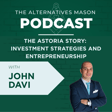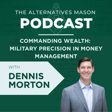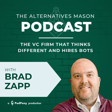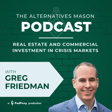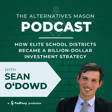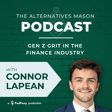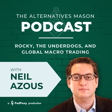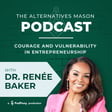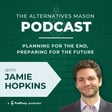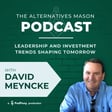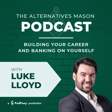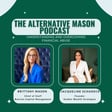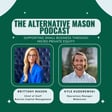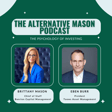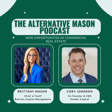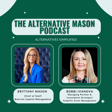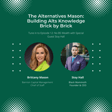
The Alternatives Mason: Building Alts Knowledge Brick by Brick | Episode 2 | Better than Alpha Featuring Christopher Schelling
Welcome to The Alternatives Mason: Building Alts Knowledge Brick by Brick. Banrion Capital Management uses technology to help independent advisors scale and educate themselves on alternative investments. Since education is such a big piece of the Banrion mission and business, we are excited to kick off this series to dive into the nits and grits of the alternatives space. Episode 2 "Better than Alpha" features alternative investment thought leader and author, Christopher Schelling.
Chris Schelling is an investor, advisor and published author. With degrees in psychology, business, and finance, Chris is an expert at incorporating insights from behavioral finance into investment decision making. He is also currently a contributing columnist for Institutional Investor and has authored over 60 articles on investing. As an institutional investor, Chris has allocated roughly $6 billion and met with over 3,500 managers across hedge funds, real assets, private credit, and private equity funds. Previously, Chris was Chief Investment Strategist of Venturi Private Wealth, Director of Private Equity at the Texas Municipal Retirement System, Deputy Chief Investment Officer at the Kentucky Retirement Systems, and an adjunct Professor of Finance at the University of Kentucky.
In his book "Better than Alpha: Three Steps to Capturing Excess Returns in a Changing World" Chris explains why strategies based on “beating the markets” are doomed to failure and provides a simple three-step framework for making better investment decisions: Behavior (smart thinking), Process (smart habits), Organization (smart governance). He explains why the search for alpha is destined to fail, the major role behavioral finance plays in so much wasted time, effort, and money, and, most important, how to avoid common mistakes and maximize your efforts.
Follow Chris on 𝕏: @schelling_chris
Host Brittany Mason’s diverse background has given her a unique perspective stepping in to the role as Chief of Staff at Banríon Capital. Throughout her career she has embraced challenging projects proving her ability to lead the development and the successful launch of brands. From staffing, branding, and marketing, Brittany has spent the last 20 years working in the fashion and entertainment industry with some of the world’s most iconic brands. This includes but not limited to event management and production for high scale events like the Superbowl, Indianapolis 500, TAO Group, NYFW, Miami Fashion Week, product launches at Salesforce’s Dreamforce, CES, and partnerships with brands such as John Frieda, Eleven Australia, and Valentino.
Her extensive work in the industry motivated Brittany to produce her own events. In 2013 her first directorial project was to spread awareness for Prostate Cancer. This 1 minute campaign video reached 13 million in just a few short weeks. This is when Brittany began producing charity fashion shows and coaching young entrepreneurs under her brand MOXIE Media. In Just one year Brittany worked with approximately 100 thousand students. In 2017 Brittany launched MOXIE Media Productions in Ireland, becoming the Director and license holder of Miss Universe Ireland. Brittany is known for the rebrand and launch of the Universe brand in Ireland and over the course of 5 years built a historical track record for the country that earned several global awards. Miss Universe Ireland became one of the country’s most exclusive and sought out events to attend. In 2019 MOXIE Media gained the right to Miss Indiana USA and Miss Indiana Teen USA making it the first production company in history to participate in the 3 largest competitions year after year; Miss Teen USA, Miss USA, and Miss Universe. Through her work she has shown her commitment to creating career opportuni
